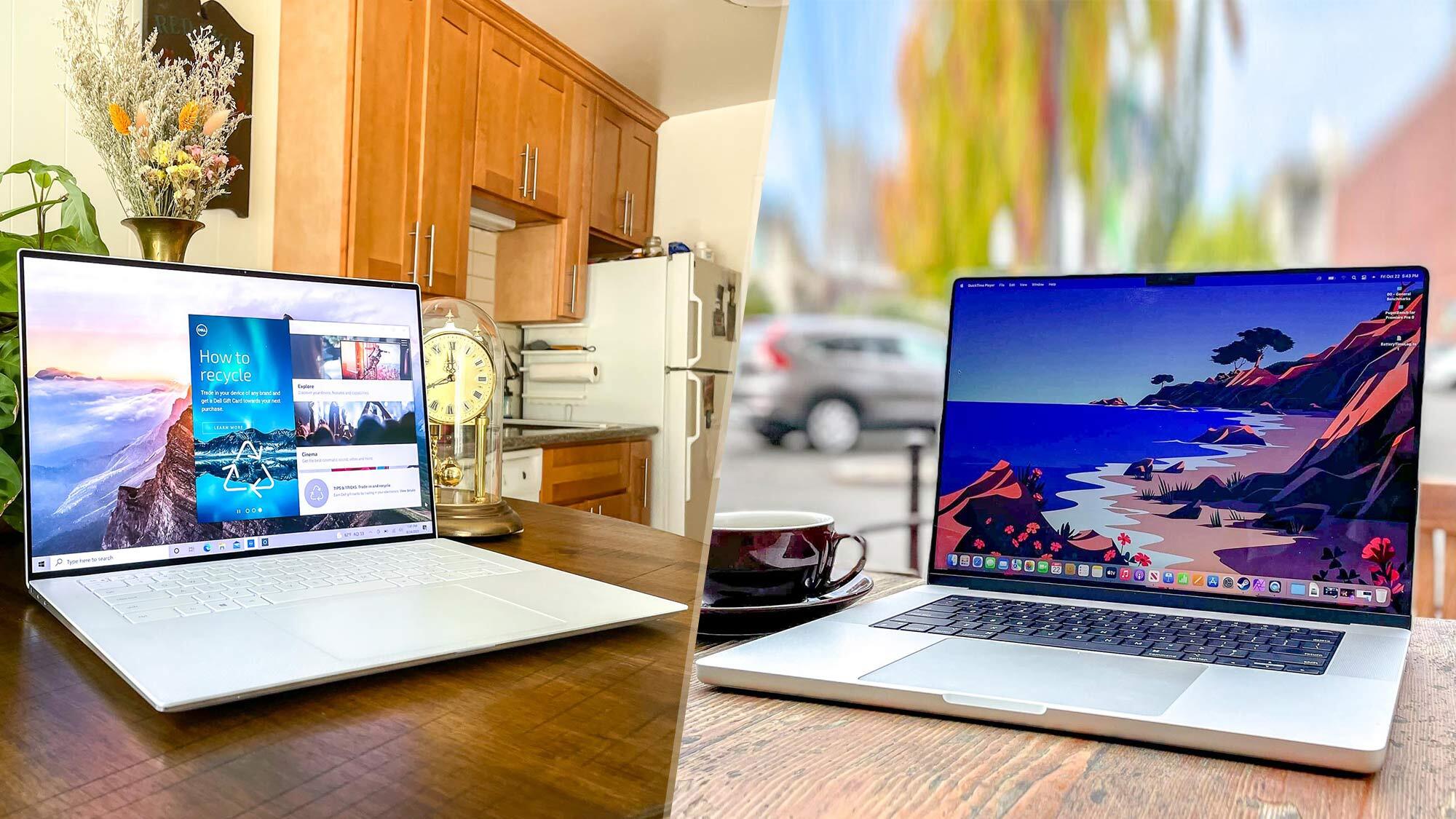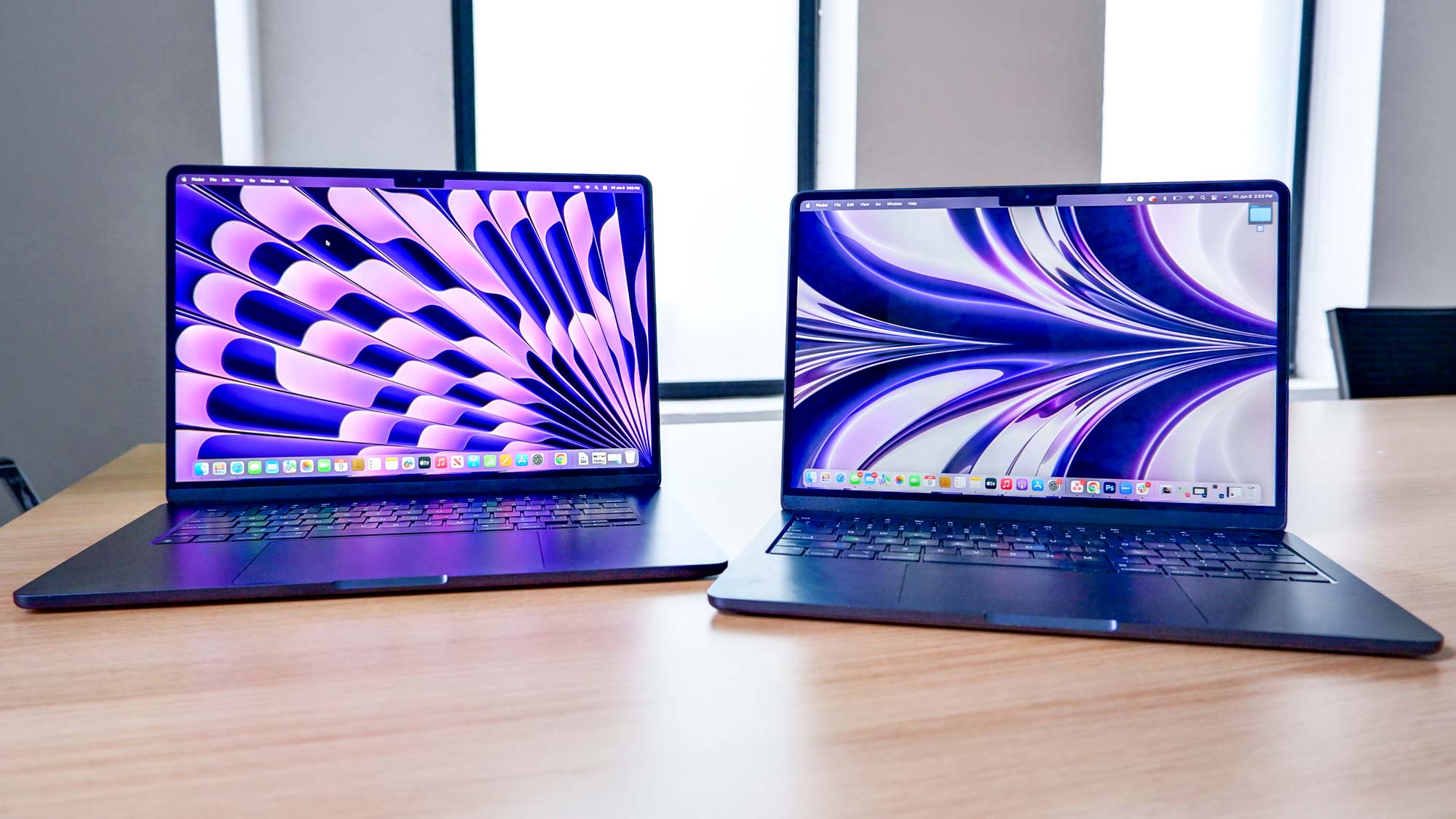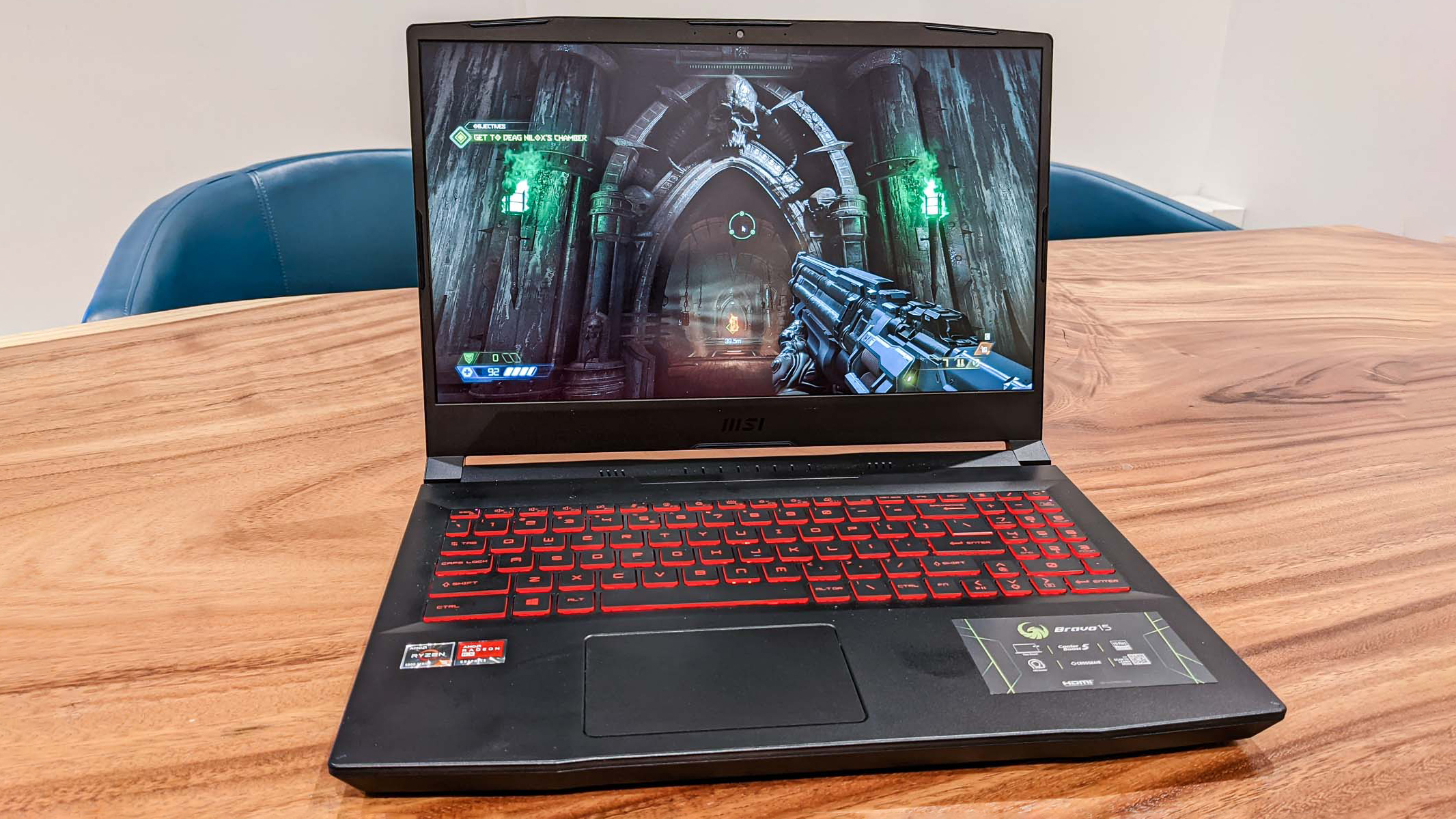
I write about computers for a living, which means I find myself fielding a fair number of tech questions from friends and family.
Many are about which is the best Windows laptop or best MacBook to buy, but just as often I'll get asked whether it's time to upgrade or not. I started to get a lot more of these questions after Windows 11 debuted in 2021, because Microsoft decided to give the latest version of Windows some slightly obnoxious system requirements that ensured many laptops and PCs made before 2018 can't run it.
That change from Windows 10 to 11, alongside the ever-present churn of newer and faster laptops hitting the market every year, has left me a little unsure of when your average laptop owner should upgrade their portable PC.
Off the top of my head, I'd ballpark 3-5 years as the average amount of time you should reasonably expect your laptop to feel useful and reliable. That's because most MacBooks and Chromebooks tend to become ineligible for new operating systems and security updates after 4-5 years. Also, once you push much pass the 5-year mark you'll start to see increasing performance and hardware issues as your laptop's components fall ever farther behind the curve.
This is important because laptop sales skyrocketed in the early years of the COVID-19 pandemic thanks to massive demand from people who suddenly needed to work or study from home a lot more often. That means a lot of people are now using laptops that are 3-4 years old, and they might be feeling the pressure to upgrade.
But I've seen plenty of evidence to suggest that my educated guess leaves a lot of room for confusing outliers. I bought my personal Dell XPS 13 laptop in 2013, for example, and ten years later it's still a perfectly usable (if very slow) Windows 10 machine. I also have a 2016 MacBook Pro on hand that's nowhere near powerful enough to handle the new macOS Sonoma, but it's still plenty good enough for basic work and web browsing.
But while a good laptop can definitely last you a decade, the temptation to upgrade more frequently is strong—and not something you should necessarily ignore. As one of the editors who oversees laptop reviews here at Tom's Guide I use multiple new models every month, so I get a firsthand look at the (sometimes significant) leaps in power and efficiency that you get with every new generation of laptop tech.
So while I wouldn't normally recommend you ditch a MacBook two years after buying it, for example, I just might if that MacBook was bought a year or two before the Apple M1 chip debuted in 2020 and redefined what we expect from a Mac. Since then we've seen every MacBook that ships with a slice of Apple silicon deliver outstanding battery life, so if you're still using an Intel-based MacBook and haven't upgraded already I recommend you do so as soon as possible.

Of course, we only learn so much from talking to laptop manufacturers and reviewing the latest and greatest every month. To better understand how long a laptop should last, I did a little digging and reached out so some industry experts for their opinions on what sort of warranty coverage and lifespan you should expect from your tech.
Is an extended warranty worth it? Here's what to know
After scouring manufacturer websites and warranty pages I've found that most laptop vendors won't prominently tell you how long you should expect their notebooks to last, perhaps because they'd prefer you upgrade as often as possible.
What's potentially more useful is knowing how much of a warranty you get when purchasing a laptop from major vendors like Acer, Apple, Dell, Lenovo and more. This information is squirreled away in different corners of every manufacturer's website, but when I finally assembled the pieces a pretty uniform picture emerged.
- Acer: 1-year limited warranty, 2-year on select laptops sold before 2019
- Asus: 1-year limited warranty
- Apple: 1-year limited warranty
- Dell: 1-year limited warranty
- Google: 1-year limited warranty
- HP: 1-year limited warranty
- Lenovo: 1-year limited warranty
- Microsoft: 1-year limited warranty
In general, investing in extended warranties would not be a good plan for regular consumers who use the laptop for their personal use."
As you can see, you can generally expect a 1-year limited warranty on any laptop you buy in the U.S. from a major manufacturer. These warranties typically cover problems that can't be blamed on you, like laptops showing up dead on arrival, batteries failing shortly after purchase and the like.
What they won't cover, however, is anything you do to your laptop or anything that happens after you've spent a year with it. You can often purchase an extended warranty that lasts 3-5 years or longer if you really want peace of mind, but some of the expert analysts I spoke to about this issue are hesitant to recommend extended warranties because it could prove a needless expense.

"In general, investing in extended warranties would not be a good plan for regular consumers who use the laptop for their personal use. Often, out-of-pocket repair costs would not exceed the total warranty costs," says Mikako Kitagawa, a director analyst at the Gartner research firm who focuses her expertise on PCs and tablets.
"An extended warranty may make sense if the laptop can be used by kids who could mistreat it or users who could move around the laptop a lot. But it is essential to make sure about the coverage of the warranty," because even if you splurge for one it may not cover the kinds of abuse you're afraid your laptop will experience.
She went on to tell me that she believes a good laptop should last you 4-5 years if it's well-made, though cheaper models may have a shorter lifespan. Keeping a laptop inside and away from hazards like rambunctious kids, bumbling cafe customers and spill-prone zones can only add to its longevity, whereas carrying it on public transit to and from work or school everyday is likely going to shorten your laptop's useful life.
"For laptops that are taken on the go and are subjected to abuse, an extended warranty can be cost effective," added tech analyst and Techsponential founder Avi Greengart. He noted that extended warranties which provide on-site repair or replacement services can be especially valuable for folks who use a laptop for essential business.
Both he and Kitagawa also believe that laptops should, in general, last longer these days than they did a decade ago. This is in part because of technological advancements (like the switch from physically spinning platter hard drives to solid-state drives with no moving parts) which make modern laptops less prone to mechanical failure.
But while laptops may be more resilient and less failure-prone than they were a decade ago, the rapid advancements we've seen in components like webcams, screens and processors afford you a lot of tempting reasons to upgrade your laptop sooner rather than later.
Laptops are a mature technology, so technically, they should last longer today than they did a decade ago."
If you're a screen snob, for example, the quality and availability of OLED displays in laptops today is leaps and bounds beyond what you could expect even three years ago. And if you're suddenly finding yourself in a lot of video calls for work, you may appreciate the benefits of upgrading to a laptop with a nice 1080p webcam and support for the latest and greatest AI-assisted video effects, like a webcam that intelligently tracks you or filters out the sound of your neighbor's leaf blower.
"Laptops are a mature technology, so technically, they should last longer today than they did a decade ago. However, we are seeing big advancements in silicon and AI, and we use laptops differently today that we did pre-pandemic," added Greengart. "If you have specific, high-performance tasks like video editing, then dedicated processors on the latest chips can make that workflow so much faster that it can make sense to upgrade, even your existing laptop is perfectly fine otherwise (this is especially true if you’re on an old Intel MacBook)."
Of course, the pressure to stay on top of the latest tech is even greater if you're buying a gaming laptop since the latest games often require the latest tech to look and run their best.
"If you’re buying a gaming laptop, you’ll want to upgrade as often as every three years to take advantage of better displays and graphics capabilities," says Greengart, and I'm inclined to agree—if you can afford it. One of the best parts about upgrading your laptop is getting to see how much faster it blazes through your day-to-day work, and few applications are better for showing off your new hardware than the best PC games.

But gaming laptops aside, I think my research has convinced me that you should definitely expect at least 4-5 years of good use out of a new laptop before you need to upgrade. If it's a cheap laptop (say, under $1,000) you may well get less, and if it's a gaming laptop you should expect to feel the pressure to upgrade as soon as 2-3 years in—especially if you really want to play the latest and greatest games.
And while an extended warranty may be worth it for the peace of mind, especially if your laptop is mission-critical or you carry it to work or school every day, most laptops should be just fine with the standard 1-year warranty and a little bit of TLC.
If you do feel like yours is getting a little long in the tooth, I recommend checking out these 5 tips to help your old laptop last longer while you peruse the best laptops on the market to see if any fit your upgrade needs. We do our best to keep you abreast of the best cheap laptop deals happening all year 'round, but if you can afford to wait I often find the best laptop deals show up between back to school season (August-September) and the Black Friday (October-November) holiday sales season.







